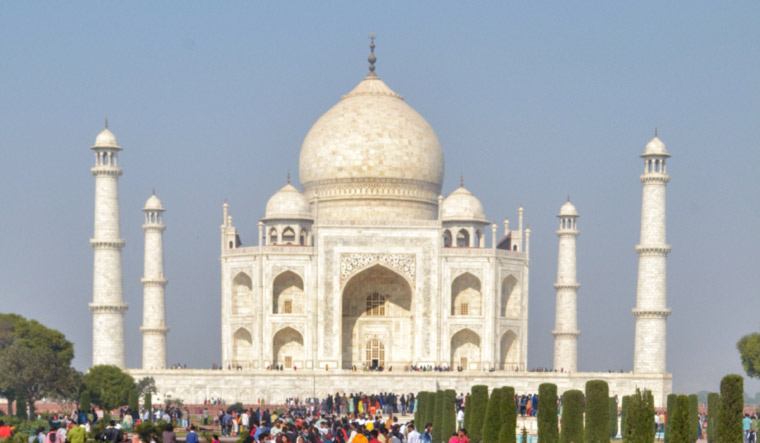The Lucknow bench of the Allahabad High Court dismissed on Thursday, the petition to open 22 doors of Taj Mahal, and setting up of a fact finding inquiry into the "history" of the monument.
A bench of Justices D.K. Upadhyay and Subhash Vidyarthi told the petitioner to not "make a mockery of the PIL system." "Tomorrow you will come and ask us to go to chambers of Hon'ble judges," the court asked.
The writ petition was filed by Rajneesh Singh, who is the media in-charge of the BJP's Ayodhya unit. "In the petition, I demanded that the 22 doors of rooms of the monument which are closed should be opened to see the truth, whatever it is," Singh had said.
The petition has also sought setting aside certain provisions of The Ancient and Historical Monuments and Archeological Sites and Remains (Declaration of National Importance) Act 1951, and The Ancient Monuments and Archeological Sites and Remains Act 1958, under which the Taj Mahal, Fatehpur Sikri, Agra Fort, Itimad-ud-Daulah's tomb were declared historical monuments.
The court told the petitioner that such debates are not welcome in the court of law. "I welcome you to debate the issue with us in the drawing room and not in a court of law."
"Are these issues debatable in a court of law? Are we judges trained and equipped with such things," the court sought to know.
"For the prayer regarding opening up of the rooms, the historical research ought to involve a proper methodology. This should be left to the historians," the court said.
"Go and research. Do M.A. Do PhD. Then choose such a topic and if any institute disallows you to research on such a topic. Then come to us. Please enrol yourself in MA, then go for NET, JRF and if any university denies you to research on such topic then come to us," the court said, reports Bar and Bench.
According to media reports, the petitioner said he will move the Supreme Court to challenge the order. “Before moving to the Supreme Court, we will approach the Department of History and the Archaeological Survey of India," Rudra Vikram Singh, lawyer of the petitioner has been quoted as saying.




